It is essential to take precautions when leaving your home unoccupied. To minimize risk, you should make sure all windows and doors are securely locked and do not leave any spare keys outside the house.
You should use a timer for lights and electronics, so that it looks like someone is home at night. If possible, install an alarm system or consider asking a neighbour to keep an eye on things while you are away.
Make sure your outdoor area is well lit with motion-sensing lights and trim back any overgrown foliage to reduce hiding places for potential intruders. Finally, it is important to inform your insurance company that your house will be unoccupied for a certain period of time, as this could affect the amount of coverage you receive in the event of a break-in or damage.
Taking these steps can help ensure that your home stays safe while you are away.
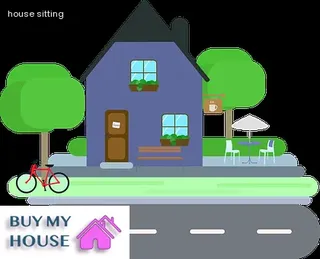
When it comes to protecting an empty home, the terms unoccupied and vacant can be easily confused. Unoccupied homes are those that are temporarily devoid of occupants but still have furniture, appliances, and other personal items inside.
Vacant homes, however, are completely empty with all possessions removed from the premises. In either case, it is essential to take certain precautions in order to protect your home while it is unoccupied.
This could mean securing windows and doors with heavy-duty locks or installing a security system with motion sensors. It might also include things like having someone regularly check the property for signs of vandalism or theft or arranging for yard maintenance services to keep up appearances so that criminals won't target the home.
Taking these precautionary steps can help give you peace of mind knowing that your home will stay safe even when you're away.
When a home is left unoccupied, it can be at risk for various security threats ranging from natural disasters to vandalism and theft. Leaving a home unattended for an extended period of time increases the chance that someone may enter the premises without permission, so it's important to take steps to protect it.
Pests such as insects and rodents can also cause damage if left unchecked, as well as water damage from pipes that freeze or burst during cold weather. In addition, leaving a home unoccupied for too long can increase the chances of fires due to faulty wiring or unattended stoves and other appliances.
Taking preventative measures against these risks is essential in order to keep your home safe while it is unoccupied.
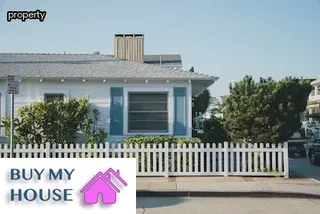
When a home is left unoccupied, there are various risks associated with it. One such risk is the possibility of tax liens and lockouts.
If taxes on an unoccupied house remain unpaid for an extended period of time, the government may place a lien on the property, which essentially means they are claiming ownership until the debt is paid off. The lien may prevent you from selling your house or taking out a loan against it until the debt is satisfied.
Additionally, if you fail to pay taxes on an unoccupied home, the government has the authority to seize the home and then sell it at auction in order to recoup any lost money. Furthermore, if you leave your house vacant for too long, some local governments have laws that allow them to change or even re-key locks on your property in order to ensure that no one else moves in without permission.
Taking proactive steps to protect your home while it's empty should be a priority so that you can avoid these issues and maintain ownership of your property.
If you have fallen behind on your mortgage payments, you need to be aware of the potential consequences of a lockout. Depending on your lender and the state you live in, lenders may take steps to protect their investment and regain control of their property.
This could include an eviction or foreclosure process which can result in financial hardship and damage to your credit score. Even if you are facing a lockout, there are steps you can take to protect yourself and mitigate losses.
You should contact your lender immediately and explain the situation before they take any further action. Exploring loan modification options, such as a forbearance or repayment plan, may also help prevent long-term damages.
Taking early action will increase your chances of protecting your home while it's unoccupied.
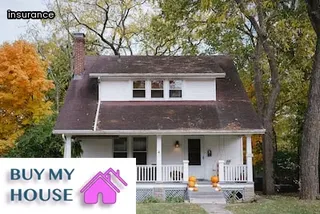
Unpaid bills can have significant consequences on your home while it is unoccupied, including fines and liens that can damage your credit score. Fines and liens are legal claims to a property due to unpaid or overdue bills, such as taxes, utility payments, mortgage payments and other debts.
When these bills remain unpaid, the lender or creditor can place a lien against the property, meaning that you cannot sell or transfer it without paying off the debt first. Unpaid bills can also lead to civil and criminal penalties like court costs and fines for failure to pay, which can further damage your credit score.
If left unchecked, unpaid bills will continue to accumulate interest until the full amount is paid off. It is essential to protect your home from financial issues by keeping up with all of your payments while it is unoccupied.
When a homeowner fails to pay their Homeowners Association (HoA) dues, the HoA may place a lien on the property. This can create serious financial and legal issues for the homeowner.
A lien is an encumbrance on a property title that must be paid before the title can be sold or transferred. In some cases, it can even prevent refinancing of the loan.
If a home is vacant when a lien is placed, it can be difficult for the homeowner to access funds needed to discharge the debt and remove the lien. In such cases, it is important to know what options are available when protecting your home while it's unoccupied.
One option is to work with lenders who specialize in negotiating with HoAs to resolve disputes related to liens on vacant properties. Another option is to utilize local laws that provide protections for homeowners in these situations by limiting what an HoA can do with vacant properties and by providing ways for homeowners to contest lien placements.
It's also important to understand that if you don't take action, an HoA could eventually foreclose on your property due to nonpayment of dues, so it's essential that you seek out all available options as soon as possible if a lien has been placed on your home while it's unoccupied.
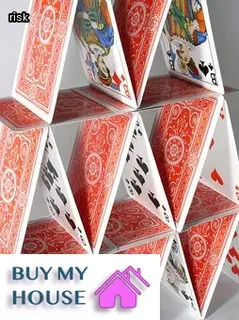
If you plan on leaving your home for an extended period of time, it's important to make sure that you have adequate homeowners insurance. Homeowners insurance policy coverage varies depending on the type of policy and provider, so it’s important to understand what is covered and what isn’t.
Basic policies cover damages caused by fires, theft, vandalism and more. However, if you’re leaving your home unoccupied for a while, there are some additional factors to consider in regards to coverage.
Many policies do not cover damage caused by power surges or water damage due to frozen pipes, so check with your insurance provider about any additional coverage options they may provide. Additionally, if your home is going to be left unoccupied for an extended period of time, consider getting an alarm system installed as a precautionary measure.
This can help protect against possible threats such as burglars or other intruders. Finally, make sure that all entrances and exits are securely locked before you leave and ensure that windows are closed and curtains drawn so that people cannot see inside the house when it's unoccupied.
Unexpectedly finding someone in your home after you have vacated the premises can be an unnerving experience. It is essential to take the appropriate steps to protect your home while it is unoccupied in order to minimize the potential risk of intruders entering.
Burglars may target vacant homes due to their vulnerable state, as they know that no one is there to alert authorities. To guard against intruders, secure external doors and windows with locks or bolts, install motion-activated lights outside or connect surveillance cameras to monitor activity around your property.
You may also consider adding additional security measures such as a security alarm system or a safe with a combination lock if you have valuable items inside. Finally, keep the exterior of your house well-maintained by trimming overgrown bushes and trees, mowing the lawn on a regular basis and never leaving mail in your mailbox for extended periods of time.
By following these tips, you can ensure that your home remains safe when it is unoccupied.
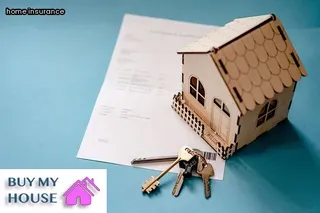
When returning home after an extended period of time away, it is possible that items may be missing. Vacationers should take extra precautions to ensure the safety of their home and possessions while they are away.
It is important to properly secure windows and doors, as well as consider investing in a security system or alarms to deter potential burglars. Additionally, family members or close friends can periodically check on the property while the homeowner is away to make sure everything looks normal.
If a homeowner suspects that something is amiss upon returning home, it is important for them to contact the police and file a report as soon as possible. Taking the necessary steps ahead of time can help reduce the chances of items being stolen from your home while you are away.
When it comes to protecting an unoccupied home, seeking legal advice is an essential part of the process. It is important to understand what rights and liabilities exist when a property is left vacant for an extended period of time.
For example, property owners have the right to evict trespassers from their unoccupied property, but they must adhere to certain guidelines and protocols established by their local authorities. Additionally, certain laws may apply to how long a person can leave their home vacant.
Depending on the specific region or state in which the property is located, there may be various regulations that need to be taken into consideration before leaving the home empty. Consulting with a lawyer or legal advisor can help ensure that all relevant laws are followed and that any necessary steps are taken to protect the property while it's unoccupied.
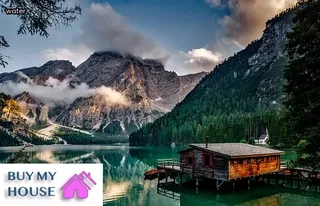
When leaving home unattended, creating an illusion of occupancy is essential for protecting your property from intruders.
Simple steps such as keeping the lights on in various rooms, closing curtains and blinds, utilising security timers to switch appliances on and off at regular intervals, or even investing in a programmable lighting system can help make your home appear occupied.
Additionally, you may also want to consider setting up a mail collection service or asking a neighbour or family member to check on your property regularly while you are away.
Taking proactive measures such as these can help deter potential burglars from targeting your house and give you peace of mind when away from home.
When a house is unoccupied, the risk of damage or loss increases significantly. For this reason, it is essential to ensure your home has adequate insurance coverage in case of theft, vandalism, fire, or other disasters.
Homeowners insurance typically offers some protection for an unoccupied house but may not cover all eventualities. It is important to contact your provider to ask about the specific types of coverage available and what additional coverage you may need.
Depending on the length of time the house will be vacant, it may be wise to purchase extra insurance such as content insurance to protect against theft or damage of personal items while away. Being aware of any restrictions regarding occupancy can also help you decide if you need additional coverage.
Ultimately, investing in appropriate insurance can provide peace of mind that your home and its contents are safe and secure while it's unoccupied.
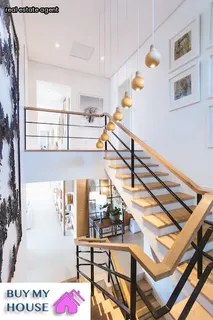
Leaving a home unoccupied for extended periods of time is a risky proposition, especially without adequate insurance. Insurance companies generally have a maximum length of time that a home can be unoccupied before coverage starts to lapse.
Depending on the insurer and policy, this could range from 30 days to over 180 days. It's important to know what timeframe your policy allows for and make sure to adjust it if you're planning on leaving your home vacant for longer than the allotted time.
As an extra precaution, make sure to contact your insurer directly prior to leaving the home unoccupied so they are aware of the situation and can advise you on any specific requirements or recommendations they may have. Additionally, consider taking steps such as having someone regularly check in on your property while you are away and arranging additional security measures like motion alarms or surveillance systems.
Protecting your home while it's unoccupied can be a daunting task. However, there are steps you can take to mitigate losses in the event that something does happen.
It's essential to make sure that your home is as secure as possible by taking proactive steps such as installing high-quality locks and security systems, utilizing motion-sensor lighting, and ensuring all windows are properly locked and secured. Additionally, regular inspections of the property should be conducted to detect any potential issues such as water damage or pest infestations.
Finally, it's important to keep contact information up-to-date for emergency services such as fire departments and local police so that if an incident does occur, help can arrive quickly. Taking these preventative measures will help ensure that your home remains safe even when you're away.
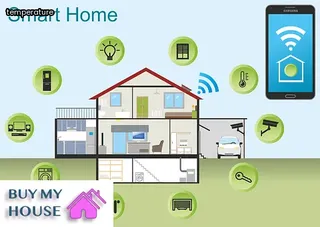
Protecting an unoccupied property can be a daunting task, but it doesn't have to be. There are several strategies that you can use to secure your home while it's not occupied.
First, make sure that all the doors and windows are locked, and consider adding extra locks if possible. You should also install a security system or alarm system to alert you if someone tries to enter the house.
Make sure that all exterior lights are working and replace any broken fixtures. Additionally, consider investing in a surveillance camera system to monitor activity around the property.
If you plan on leaving for an extended period of time, enlist the help of neighbors who can keep an eye on your home while you're away. Taking these steps will help to ensure that your empty property is safe and secure while you're away.
Leaving a house unoccupied and unprotected can be a daunting thought for any homeowner, especially when it comes to the worst-case scenario. The risks of theft, vandalism and even fire are all too real.
Unsupervised empty houses are often targeted by criminals looking for an easy way in and out. Without proper security measures, homeowners may find themselves facing extensive property damage which could lead to hefty repair bills or even having to completely rebuild their homes.
Fire is also a major concern, as an unattended lit candle or stove left on could quickly spread throughout the entire home. Having insurance coverage will help mitigate some of these risks but will not always cover all costs associated with restoring a damaged or destroyed home.
Homeowners should take proactive steps to protect their homes while they’re away by investing in security systems, updating locks, installing outdoor lighting and utilizing timers for indoor lights. Neighbors should also be asked to keep an eye on the home in the owner's absence.
Taking these precautionary steps can help ensure peace of mind for any homeowner who must leave their home vacant for extended periods of time.
Leaving your house unattended for extended periods of time can be worrying, but it doesn't have to be. It is possible to protect your home while it is unoccupied, and understanding how long you can leave your home unattended can help you to plan accordingly.
Generally speaking, it is safe to leave a home unattended for up to 30 days at a time if the necessary precautions are taken. These include taking steps such as arranging for someone to check in on the property regularly, setting up motion-sensor lights and other deterrents, and investing in a monitored security system.
If you plan on leaving your house vacant for longer than 30 days, however, additional measures may need to be taken such as turning off the water supply and notifying local law enforcement - especially if you live in an area with high crime rates. Ultimately, by taking the right steps and planning ahead before leaving your house unattended, you can ensure that your property remains safe while you are away.
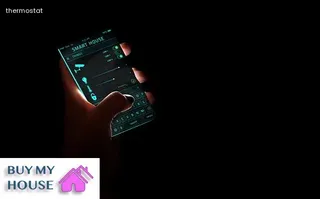
Leaving a house empty can be daunting, but there are many ways to protect your home while it is unoccupied. It is important to take all necessary steps to keep your home safe and secure while you are away.
Taking proactive measures such as installing security systems, motion sensors, and CCTV cameras can help deter burglars. Additionally, making sure all windows and doors are locked and secured before leaving can also help mitigate the risk of theft or vandalism.
Other essential safeguards include making sure all utilities are turned off or disconnected when leaving for an extended period of time and having someone check in on the property periodically to ensure everything is secure. By taking the time to implement these measures, it will give you peace of mind knowing that your home is safe and secure even when you're away.
When leaving a house unoccupied for months at a time, it is essential to take the necessary precautions to protect your home. Start by informing your neighbors that you will be away for an extended period of time, and ask them to look out for any suspicious activity.
Make sure all doors and windows are securely locked, and consider installing extra security measures such as motion-sensor lights or window/door alarms. If possible, consider having someone check in on the property periodically while you are away; this could be a neighbor or a professional property management company.
Also, try to make the home appear occupied by leaving some lights on timers, mowing the lawn regularly, or having mail held or picked up from the post office. Lastly, if you are able to have someone stay in your house while it is vacant that is ideal as they can keep an eye on the property and respond quickly should anything happen.
Taking these steps will help ensure that your home remains safe while you're away.
Leaving a house vacant can have significant risks, particularly if the property is not protected properly. Unoccupied properties are much more vulnerable to break-ins, vandalism and squatting.
Burglars are often drawn to unoccupied homes as there is nobody around to prevent them from entering or catch them in the act. Vandals may target an unoccupied home out of boredom or a desire to cause damage and disruption.
Squatters can also move into an empty house without the owner's permission and attempt to claim it as their own. In extreme cases, they may even damage the property while they are living there, leading to expensive repair bills for the homeowner.
It is therefore extremely important that homeowners take measures to protect their property when it is left vacant.
A: Generally, most home insurance policies will cover a vacant home for up to 30-60 days. However, you may need to increase your premiums during this time in order to keep your coverage active. To ensure that your mail is properly forwarded, it's best to contact the USPS before leaving.